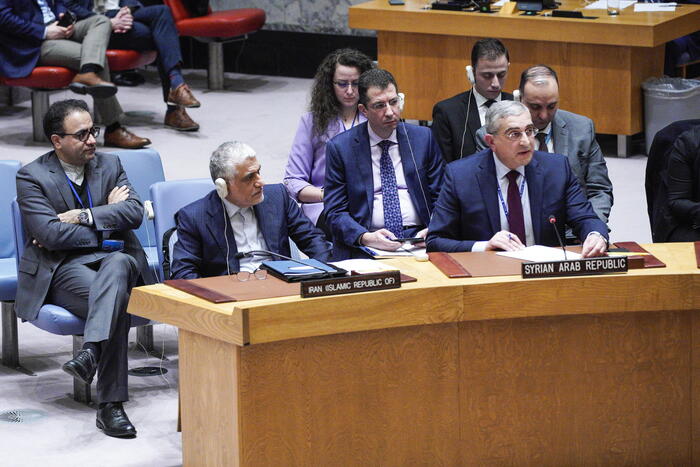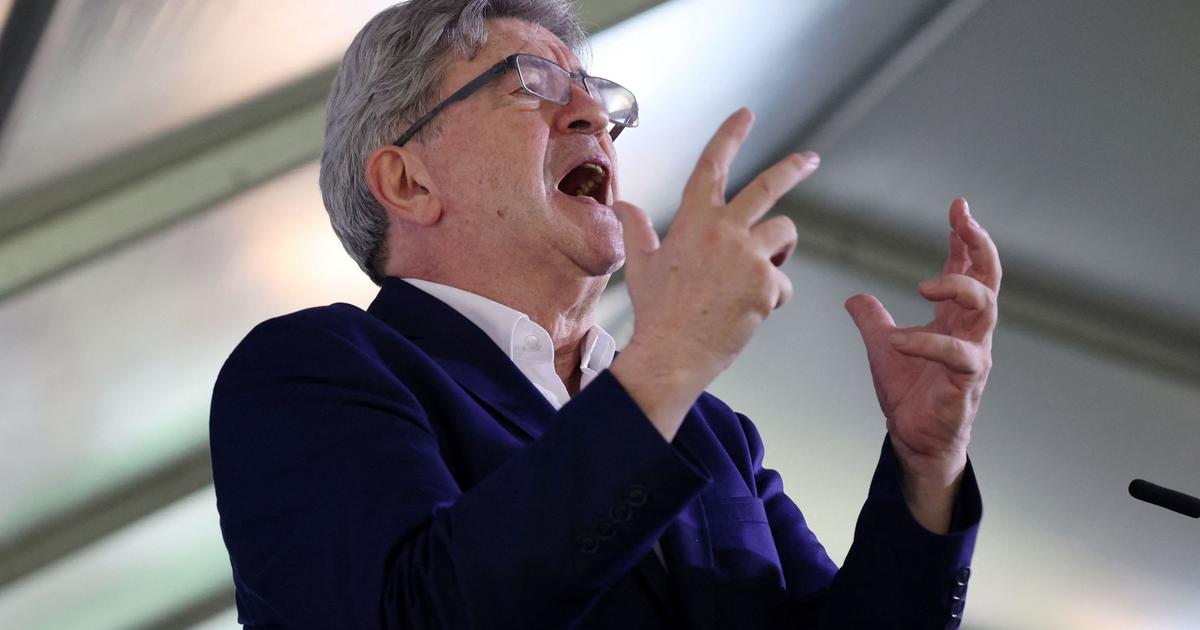Enlarge image
President Putin when announcing the attack: "There is not a shred of justification," says international law expert Khan
Photo: imago images / SNA / IMAGO
SPIEGEL:
Professor Khan, can the Russian attack on Ukraine be justified in any way?
Khan:
Rarely in international conflicts has the answer been so easy: no.
This is a crystal clear war of aggression against a sovereign state, even a member of the United Nations.
One can hardly imagine a clearer case.
The prohibition of such an attack is perhaps the most important pillar of the post-World War II international legal order.
And Russia is also violating numerous other international treaties, including those relating to its relationship with Ukraine.
SPIEGEL:
In the run-up to the attack, President Putin tried to partially justify his actions legally.
Khan:
The effort was evident.
Alone: These are all bogus arguments, and all states and international actors are called upon to expose them as such - and rightly so today the German Society for International Law: There is simply not the slightest bit of justification for this military aggression!
Foreign Minister Annalena Baerbock rightly spoke of the "Day of Shame".
Those were the words of US President Theodore Roosevelt after the Japanese attack on Pearl Harbor.
Ms. Baerbock has been smiled at a lot because she described herself as an expert in international law, although she can only rely on postgraduate studies.
But here she showed: she knows her stuff and she has a feel for it.
Also because she said clearly: This is a Russian crisis, not a crisis in Ukraine.
"Appearance of Legitimacy"
SPIEGEL:
Can you understand Putin's motives?
He has repeatedly pointed out that Russia once ceded territories to Ukraine, which were lost to Russia after Ukraine's declaration of independence and the subsequent collapse of the Soviet Union.
Khan:
You can feel his pain over the implosion of the Soviet empire - however, his motives are absolutely incomprehensible rationally.
The pain of losing a KGB agent in Dresden, who was Putin at the time, cannot justify a war of aggression.
Period.
SPIEGEL:
The so-called People's Republics of Donetsk and Luhansk ...
Enlarge image
Speaker Putin on March 18, 2015 at a celebration one year after the annexation of Crimea: »The international law experts agree that the use of force must not have a legitimizing effect: neither in Crimea nor anywhere else«
Photo: Maxim Shipenkov / AFP / Getty Images
Khan:
... do not change the fact that it is still Ukrainian territory.
Recognizing this – apparently only in any case to give the appearance of legitimacy to the attack that followed – was already an interference in Ukraine's internal affairs and thus a violation of international law.
And the month-long deployment of troops was already a violation of the ban on aggression.
SPIEGEL:
Could he have tried to win back the two alleged people's republics in a different, legal way?
Khan:
All disputes between states can be resolved, including territorial disputes.
But only in a peaceful way, that is, through negotiations.
A change in the territorial status quo is therefore not possible without Ukraine's consent.
International law experts agree that the use of force must not have a legitimating effect: neither in Crimea nor anywhere else.
The right of peoples to self-determination can only be an argument for secession in the most extreme case, for example in the case of genocide.
In this specific case, however, it is without a doubt a particularly bold bogus argument.
SPIEGEL:
Now the dispute is also about NATO's eastward expansion.
Putin complains that the Soviet Union was verbally assured that NATO would not expand eastward after German reunification.
Enlarge image
US soldiers in Poland on April 13, 2017 at a welcome ceremony): »NATO threatens nobody«
Photo: Wojtek Radwanski / AFP
Khan:
Were certain expectations raised here, was trust betrayed here?
Maybe.
Such verbal commitments can be mere diplomacy or a legally binding act - which is very doubtful here.
Ultimately, however, that doesn't matter: the threat of military force - and certainly not its use - is simply not a permissible reaction to disappointed expectations in international relations.
Incidentally, every sovereign state – including Ukraine – has the right to freely choose its alliance.
And with a view to Russia's security interests, one simply has to be clear: NATO isn't threatening anyone.
SPIEGEL:
What could the international community do now?
Russia has a veto in the UN Security Council.
Khan:
Yes, but there is a way out: there was already such a blockade during the Korean War, and at that time the UN General Assembly, i.e. the assembly of all member states, claimed the right to use military force to authorize the termination of an international conflict.
Regardless of the question of whether it would make sense here: This option would be available.
"Every state should come to Ukraine's military aid"
SPIEGEL:
Could Putin be indicted before the International Criminal Court in The Hague?
Khan:
Basically yes.
As early as 2014, Ukraine recognized Hague jurisdiction for the first time in connection with the Crimean crisis and events in eastern Ukraine.
investigations are ongoing.
So if war crimes are committed now and Putin can be held liable as commander-in-chief, an indictment would also be possible against Russia's will.
However, when it comes to the crime of aggression, the Security Council would have to agree - and here Russia has a veto again.
more on the subject
Russia's attack on Ukraine: shock announced by Severin Weiland
War in Ukraine: This is how Europe wants to react to Putin's attackBy Markus Becker and Ralf Neukirch, Brussels
Putin's attack on Ukraine: Why Germany should deliver weapons nowA commentary by Sebastian Fischer
Wording of Putin's Ukraine speech: "Neanderthal-like and aggressive nationalism and neo-Nazism"
Threatening speeches in a fact check: Putin's mistakes, half-truths and outright liesBy Anika Zeller, Muriel Kalisch and Johannes Eltzschig
SPIEGEL:
Another aspect: could the Federal Republic of Ukraine now supply weapons for defense?
Khan:
Legally yes, but the Basic Law is very reticent for good historical reasons.
Ultimately, this is a political decision.
SPIEGEL:
And what sanctions are now allowed?
Khan:
In such a case: Economically and politically everyone.
But what has hardly been mentioned so far: Ukraine not only has the right to self-defense, but every other state should now rush to its military aid.
Putin himself alluded to this right to collective self-defense by explicitly warning the international community not to help Ukraine.
But who wants to risk nuclear war?














